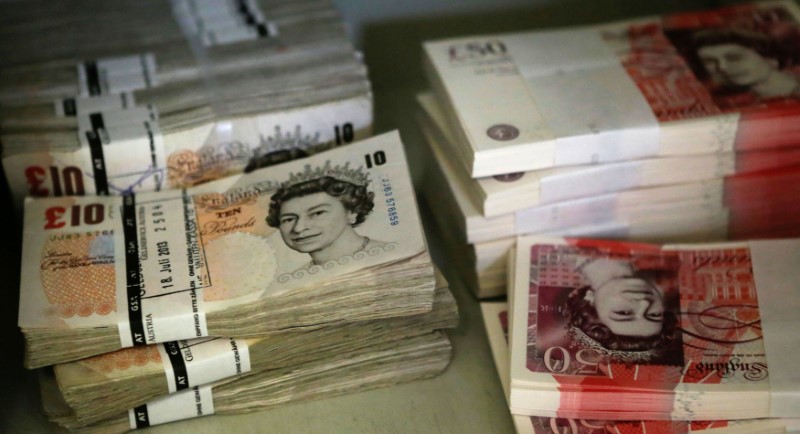Investing.com - The pound was little changed against the broadly stronger dollar on Wednesday after a report showing that the U.K. unemployment rate fell in the three months to September, but also indicated that the labor market could be slowing.
GBP/USD was trading at 1.2451, holding above Tuesday’s lows of 1.2378.
The U.K. unemployment rate ticked down to a new 11-year low of 4.8% in the July-September period, the Office for National Statistics said, compared to forecasts for an unchanged reading of 4.9%.
The number of people signing on for unemployment benefits jumped by 9,800 in October and September’s figure was revised up to 5,600 from an initial estimate of 700.
Economists had expected an increase of just 2,000 people.
The rate of employment growth also slowed, as just 49,000 people found work in the July-September quarter, the slowest increase since March.
Average pay, excluding bonuses, rose by an annualized 2.4% in the three months to September, up from 2.3% in the three months to August.
But pay, including bonuses rose by 2.3%, matching the rate of growth in the three months to August.
Demand for the dollar continued to be underpinned as investors continued to contemplate the outlook for a U.S. interest rate hike and increased fiscal spending once Donald Trump enters the White House.
The U.S. dollar index, which measures the greenback’s strength against a trade-weighted basket of six major currencies, hit highs of 100.34 on Wednesday, a level not seen since December 2015.
If the index climbs above the highs of 100.51 set in December 2015, it would reach its highest level since April 2003.
The dollar has been boosted by expectations that the Federal Reserve is on track to raise interest rates next month.
Investors are currently pricing a 85.8% chance of a rate hike at the Fed's December meeting; according to federal funds futures tracked Investing.com's Fed Rate Monitor Tool.
Expectations for higher rates typically boost the dollar by making it more attractive to yield seeking investors.
Many investors also believe that Trump's campaign pledges to increase fiscal spending, cut taxes and loosen financial regulation will lead to a pickup in economic growth and inflation.
Faster growth and inflation would also prompt the Fed to tighten monetary policy a faster rate than had previously been expected.
